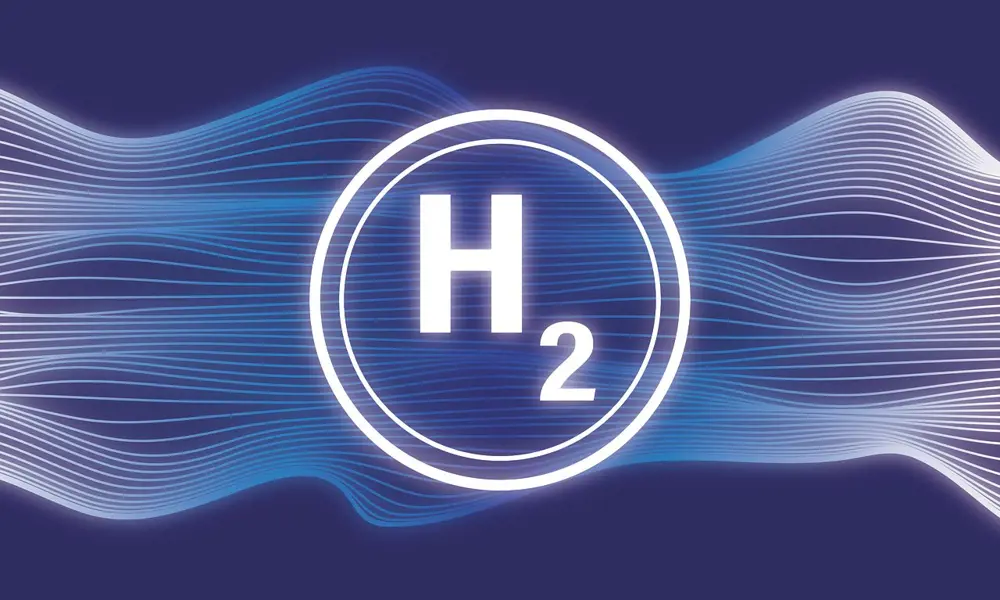
The challenges of creating a hydrogen economy
Hydrogen is the most abundant element in the universe, yet we still haven’t harnessed its full potential for a sustainable energy system, as the UK lacks the infrastructure and capacity needed to produce and use low-carbon hydrogen at scale. It’s a highly versatile energy carrier that could help to decarbonise sectors where other energy sources, such as electricity, may not be suitable. But the scaling up of low-carbon hydrogen production that is ‘carbon neutral’ poses many engineering challenges. Deciding how best to use hydrogen to achieve decarbonisation needs to be made from a whole-system point of view. What is clear is that few areas of engineering will escape the need to change and develop new technologies and systems to adapt to the future hydrogen economy. Hydrogen comes in many forms, commonly described as colours. The three most discussed ‘colours’ of hydrogen, each with its own engineering challenges, are:
- grey – produced from natural gas/coal
- blue – also produced from natural gas/ coal but using carbon capture and storage technology to capture and store carbon that would otherwise be emitted
- green – produced using renewable energy to power electrolysis of water.
It takes a high energy input to generate hydrogen of any ‘colour’, making efficient and low-carbon production a key challenge. Green and blue hydrogen are the most desirable options if we want to create a low-carbon hydrogen economy. Currently, more than 96% of the UK’s hydrogen production is grey hydrogen, which is carbon-intensive and not aligned with achieving net zero.
As the cleanest form of hydrogen, green hydrogen could benefit our future power system by providing greater system flexibility, improved energy security through reduced demand for natural gas as a form of energy storage, and as a source for dispatchable low-carbon electricity generation.
How to use hydrogen in the real world
However, the UK currently doesn’t have the infrastructure we need to meet the government’s hydrogen commitments. Rapidly developing the capacity for low-carbon hydrogen production and use will be a big task for engineers across many sectors, including chemicals, industrial heating or long-distance transport.
A pragmatic and carefully managed delivery of the infrastructure needed is vital to maximise hydrogen’s potential as part of a net zero energy system. But the use of hydrogen will also need major engineering advances across many sectors, such as in carbon capture and storage technology for blue hydrogen production and electrolyser technology for green hydrogen production, with new infrastructure to produce, store and transport hydrogen safely and reliably.
In industry, such as steel production, hydrogen could play an important role in decarbonisation. Industrial heating currently relies on fossil fuels to run furnaces for manufacturing, but hydrogen could instead be used to produce direct reduced iron, with water instead of CO2 as a by-product. Hydrogen is likely to be the only viable full decarbonisation option here, but it requires industries such as steel to swiftly prepare to switch to hydrogen.
For some forms of transport, hydrogen-based fuels are likely to be the most suitable and efficient low-carbon energy sources. With further research and development, hydrogen could make a significant contribution to decarbonising aviation, shipping and heavy goods vehicles. Hydrogen trains may also play a role where overhead electrification is too expensive. Hydrogen storage technologies will be critical to its success in transport.
Indeed, hydrogen storage remains a significant engineering challenge to overcome. Hydrogen is much more difficult to store than other gases because of its small molecules, explosive nature and very low liquification temperatures. It requires purpose-built storage with thorough safety standards. It must be compressed or liquefied and then stored in geological sites such as underground salt caverns and spent oil and gas wells. Current storage efficiency ranges between 85% and 98% and depends significantly on the compression ratios.
To advance the hydrogen economy, industries need to invest in the skills and technologies required to integrate hydrogen into their processes, along with continued innovation in compression and storage technologies for hydrogen supply and transport. The underlying policy environment will also be crucial, particularly where public trust in hydrogen’s safety is concerned.
Indeed, hydrogen storage remains a significant engineering challenge to overcome ... it is much more difficult to store than other gases because of its small molecules, explosive nature and very low liquification temperatures.
Issues relating to standards, safety and the environment are familiar to all areas of engineering. Determining where hydrogen can best be deployed to achieve net zero, plugging the necessary skills gaps, and investing in R&D will also require the appropriate policy. The right policies must be in place for engineers to properly play their part in the hydrogen economy.
What's needed for widespread hydrogen use?
The NEPC’s report The role of hydrogen in a net zero energy system highlighted that the government must rapidly scale up the UK’s low-carbon hydrogen infrastructure – focusing on areas where hydrogen offers the greatest value to decarbonisation of the whole energy system.
For this to happen, it recommends that the government:
- invests now in rapid and early pilot projects to determine which end uses of hydrogen can achieve the highest carbon savings and cost efficiencies across the whole energy system
- implements an ambitious but pragmatic roadmap for scaling up low-carbon hydrogen production to meet demand for end uses where hydrogen could become the best or only low- or zero-carbon option available.
Another policy requirement is to manage the risks and dependencies when scaling up hydrogen value chains – the journey that hydrogen takes from production to transportation, storage and end use. The government must act now to:
- implement low-carbon hydrogen standards that include emissions throughout the production and supply process
- build up regulators’ capability to robustly enforce and monitor crucial regulations, including low-carbon hydrogen standards for producing blue hydrogen
- execute further hydrogen safety assessments
- manage the supply risks associated with critical scarce materials needed for producing green hydrogen.
In keeping with the systems nature of the transition to a hydrogen economy, within five years, the government must also:
- address skills gaps relating to carbon capture and storage, renewable electricity, and hydrogen to enable widescale deployment. Some studies have suggested that the UK’s offshore oil and gas workforce can expect to have a medium transferability to blue hydrogen and carbon capture and storage. Skills needed to produce green hydrogen are similar to the chemical industry and only minor upskilling will be needed. However, for both blue and green hydrogen production, further research is required to understand the skills gaps, develop a green skills strategy to sufficiently upskill the workforce for these emerging sectors and ensure a just transition for the UK’s offshore energy workforce
- encourage an international market in low-carbon hydrogen by fostering the development of globally assured standards and certification mechanisms
- invest in research and innovation to reduce/remove the need for critical scarce materials required for electrolysers for green hydrogen production, such as platinum, iridium and yttrium.
Hydrogen could play a significant role in a future net zero energy system, so engineering businesses must consider how to upskill their knowledge of hydrogen’s applications and assess their readiness for implementing it. The engineering community needs to prepare for hydrogen to become more prominent in the future; don’t sit passively waiting for it to sneak up on you.
Contributors

Nilay Shah OBE FREng is a professor of process systems engineering at Imperial College London. He is interested in the use of models and process systems engineering techniques to understand and design low-carbon energy and industrial systems. He is a member of the government’s Hydrogen Advisory Council, Chief Technology Officer of a synthetic fuels business, and Vice Chair of the NEPC net zero working group, hosted by the Royal Academy of Engineering.
Keep up-to-date with Ingenia for free
SubscribeRelated content
Energy

Algae-powered architecture
An apartment block in Hamburg in Germany has been built that uses microalgae placed within its façade to generate heat and biomass. Jan Wurm, an associate director at Arup, was one of the chief designers of the energy system. He talked about the concept, execution and results from the world’s first photobioreactor.

Digital hydraulics for wind energy and beyond
Research that has helped change the technology for harnessing wind energy has many other applications. The digital hydraulics system devised by Artemis Intelligent Power has received many accolades, the latest being the winner of the 2015 MacRobert Award.

New energy pioneers
London-based BBOXX supplies solar-powered battery boxes to customers in developing countries. Their remote monitoring and battery management system was one of the winners of the 2015 Bloomberg New Energy Finance Award.

Energy with connections
When Steve Holliday FREng moved from the oil industry into energy distribution, the sector was seen as staid. In reality, during his years at National Grid, the sector became increasingly important as the need to tackle climate change led to a transformation in the UK’s energy mix.
Other content from Ingenia
Quick read

- Environment & sustainability
- Opinion
A young engineer’s perspective on the good, the bad and the ugly of COP27

- Environment & sustainability
- Issue 95
How do we pay for net zero technologies?
Quick read

- Transport
- Mechanical
- How I got here
Electrifying trains and STEMAZING outreach

- Civil & structural
- Environment & sustainability
- Issue 95